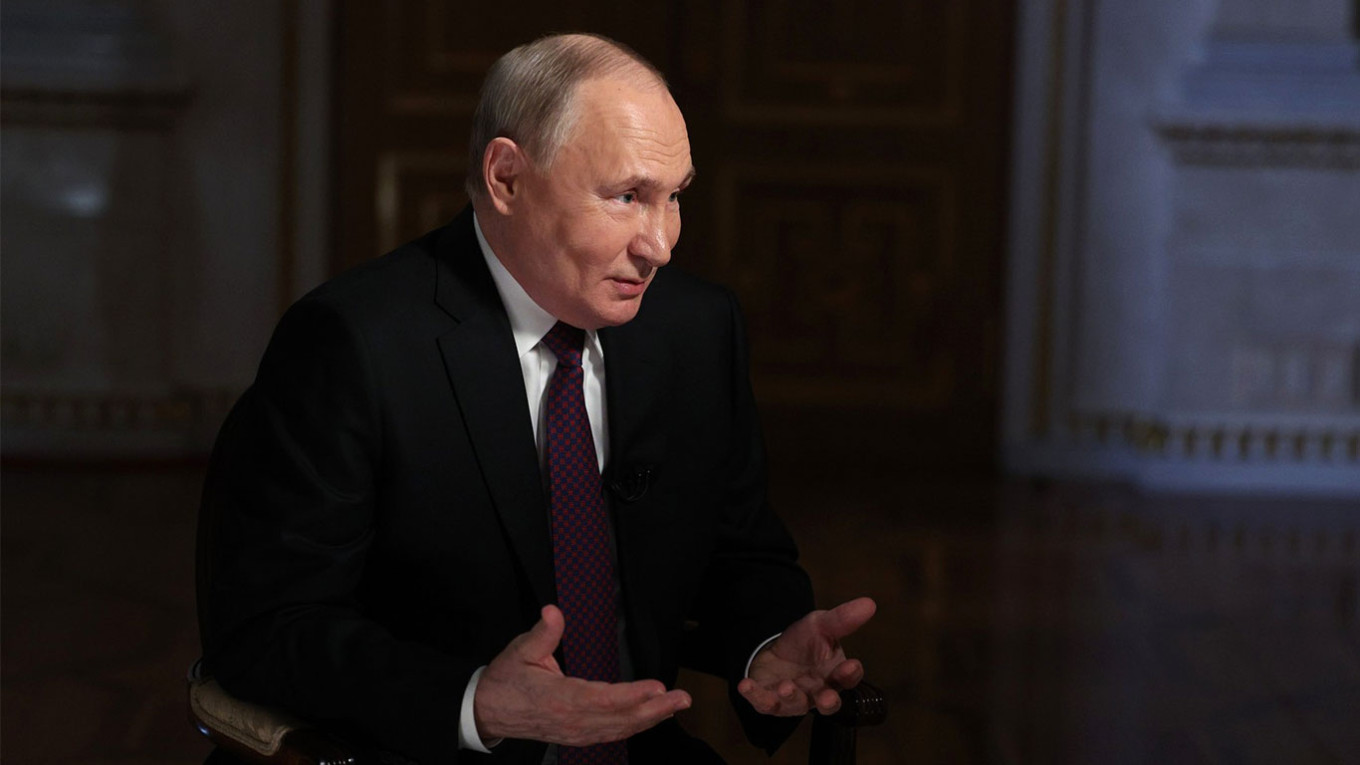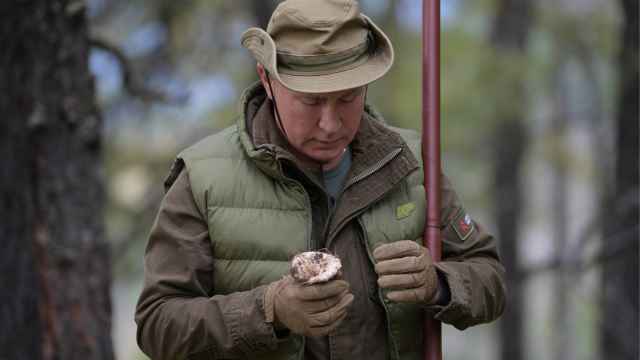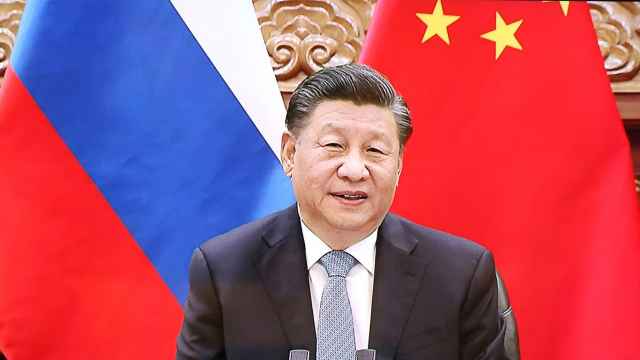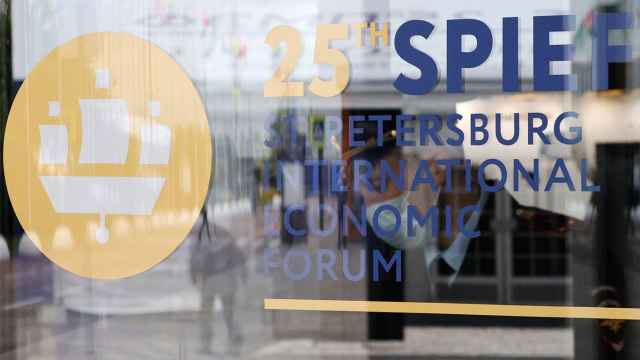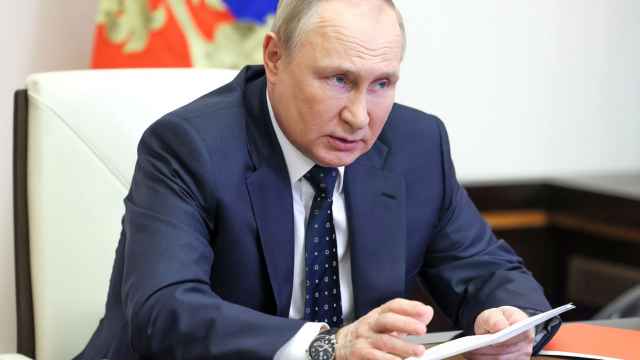President Vladimir Putin gave a wide-ranging interview to leading Russian TV presenter Dmitry Kiselyov on Wednesday, days ahead of the country’s presidential election where he is expected to easily win re-election.
The hour-and-a-half-long televised interview focused heavily on domestic political and economic issues with some attention given to Russia’s foreign policy, particularly its two-year war against Ukraine.
Here's a look at the interview’s highlights:
On the invasion of Ukraine and the potential for peace talks with Kyiv and the West
Putin said he was ready "for a serious conversation" aimed at ending hostilities, but only if the negotiations take place on Moscow's terms.
"These demands [by Ukraine] are based on some wishful thinking after the use of psychotropic substances," he said, referring to Kyiv’s refusal to negotiate unless Russian troops completely withdraw from Ukraine’s territory.
Putin appeared to be referencing unfounded claims often aired on Russian state television that Ukrainian President Volodymyr Zelensky uses drugs.
Meanwhile, the Russian leader said that security guarantees for Russia would be a precondition for any peace talks.
"We need guarantees. The guarantees should be spelled out, should be ones that would suit us, that we would believe in."
On pro-Kyiv militias’ attacks on Russian border regions
The interview was aired hours after volunteer groups of Russians fighting on the side of Ukraine made a brazen attack on western Russia's border regions of Kursk and Belgorod.
"It's simple. This is all happening amid [Ukraine’s] failures on the frontline. They did not achieve any of the goals that they set for themselves last year," Putin said.
"I have no doubt that the main goal is, if not to disrupt the presidential election in Russia, then to somehow interfere with the normal process," he said.
On the possibility of U.S. forces fighting in Ukraine
Putin said the Kremlin would view the appearance of U.S. troops on Ukrainian territory the same as if they entered Russian territory.
"We know what American troops on Russian territory means. They are interventionists. That's how we will treat it, even if they enter the territory of Ukraine, they [U.S. leadership] understand that."
Although, he claimed that "the militaries of Western countries have been present in Ukraine for a long time," referring to what the Kremlin says are mercenaries.
"But if we talk about official military contingents of foreign countries, I am sure it will not change the situation on the battlefield," he added.
On nuclear conflict
The Russian leader said his country is "prepared for nuclear war from a military-technical point of view," adding that Moscow has its troops "constantly on the alert."
"Our triad, the nuclear triad, is more modern than any other triad. Only we and the Americans actually have such triads. And we have advanced much more here."
"We are ready to use weapons, including any weapons — including the weapons you mentioned — if it is a question of the existence of the Russian state or damage to our sovereignty and independence," he said.
When asked whether Russia will carry out nuclear tests, Putin said that he "does not rule out a test if the U.S. is the first to do so."
On rumors of post-election tax hikes
Recent media reports suggest that Russia plans to hike corporate taxes following the presidential election to help fund the war effort. Putin, while not commenting directly on the reports, hinted that the government may soon introduce a kind of "progressive tax."
"The distribution of the tax burden should be fair in the sense that corporations, legal entities and individuals who earn more should contribute more, to put it plainly."
He declined to reveal more details.
Later on Wednesday, Russian lawmakers announced they had started work on a tax reform bill.
A Message from The Moscow Times:
Dear readers,
We are facing unprecedented challenges. Russia's Prosecutor General's Office has designated The Moscow Times as an "undesirable" organization, criminalizing our work and putting our staff at risk of prosecution. This follows our earlier unjust labeling as a "foreign agent."
These actions are direct attempts to silence independent journalism in Russia. The authorities claim our work "discredits the decisions of the Russian leadership." We see things differently: we strive to provide accurate, unbiased reporting on Russia.
We, the journalists of The Moscow Times, refuse to be silenced. But to continue our work, we need your help.
Your support, no matter how small, makes a world of difference. If you can, please support us monthly starting from just $2. It's quick to set up, and every contribution makes a significant impact.
By supporting The Moscow Times, you're defending open, independent journalism in the face of repression. Thank you for standing with us.
Remind me later.


